
Groningen: The Vibrant Heart of the North
Groningen, located in the northern part of the Netherlands, is a city that beautifully blends history with a youthful spirit. Known for its lively atmosphere, thanks to a large student population, Groningen offers a unique combination of old-world charm and modern attractions. The city's rich history is evident in its well-preserved medieval buildings, such as the Martinitoren, a stunning tower that offers panoramic views of the city. Stroll through the picturesque streets of the city center, where historic architecture meets bustling boutiques, cafes, and markets. The Grote Markt, the central square, is a hub of activity and the perfect place to experience local culture. Don't miss the Groninger Museum, an architectural marvel that houses contemporary art and fascinating exhibitions. Nature lovers will appreciate Groningen's green spaces. The Noorderplantsoen, a beautiful park, is ideal for a relaxing walk or a picnic. Additionally, the city's extensive network of canals provides scenic routes for boating and cycling. Groningen is also known for its vibrant nightlife, with numerous bars, clubs, and live music venues catering to all tastes. Whether you're interested in history, culture, or simply enjoying the city's lively ambiance, Groningen has something for everyone. Its friendly locals and welcoming atmosphere make it an unforgettable destination.
Local tips in Groningen
- Rent a bike to explore the city like a local; Groningen is very bike-friendly.
- Visit the Vismarkt on Fridays and Saturdays for fresh local produce and a lively market atmosphere.
- Climb the Martinitoren for the best views of the city, but be prepared for a steep ascent.
- Take a boat tour on the canals for a different perspective of Groningen's beautiful architecture.
- Check out the events at De Oosterpoort for a taste of Groningen's vibrant music scene.
Groningen: The Vibrant Heart of the North
Groningen, located in the northern part of the Netherlands, is a city that beautifully blends history with a youthful spirit. Known for its lively atmosphere, thanks to a large student population, Groningen offers a unique combination of old-world charm and modern attractions. The city's rich history is evident in its well-preserved medieval buildings, such as the Martinitoren, a stunning tower that offers panoramic views of the city. Stroll through the picturesque streets of the city center, where historic architecture meets bustling boutiques, cafes, and markets. The Grote Markt, the central square, is a hub of activity and the perfect place to experience local culture. Don't miss the Groninger Museum, an architectural marvel that houses contemporary art and fascinating exhibitions. Nature lovers will appreciate Groningen's green spaces. The Noorderplantsoen, a beautiful park, is ideal for a relaxing walk or a picnic. Additionally, the city's extensive network of canals provides scenic routes for boating and cycling. Groningen is also known for its vibrant nightlife, with numerous bars, clubs, and live music venues catering to all tastes. Whether you're interested in history, culture, or simply enjoying the city's lively ambiance, Groningen has something for everyone. Its friendly locals and welcoming atmosphere make it an unforgettable destination.
When is the best time to go to Groningen?
Iconic landmarks you can’t miss
Groninger Museum
Explore the Groninger Museum, a hub of contemporary art and innovative architecture in the heart of Groningen, Netherlands.
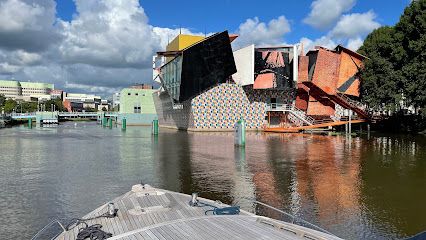
Forum Groningen
Discover the heart of Groningen at Forum Groningen, a vibrant cultural center featuring a library, museum, cinema, and delightful dining options.
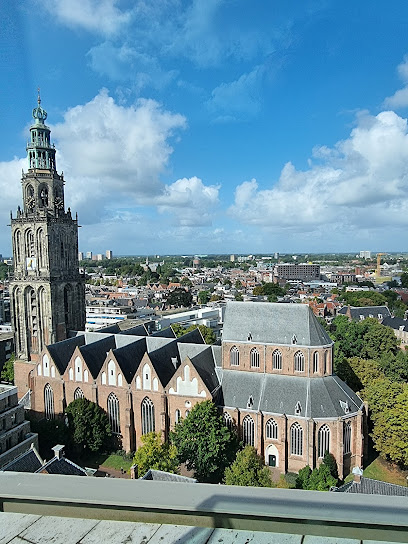
Noorderplantsoen
Experience the serene beauty of Noorderplantsoen Park in Groningen, where lush landscapes and cultural monuments create a perfect escape.
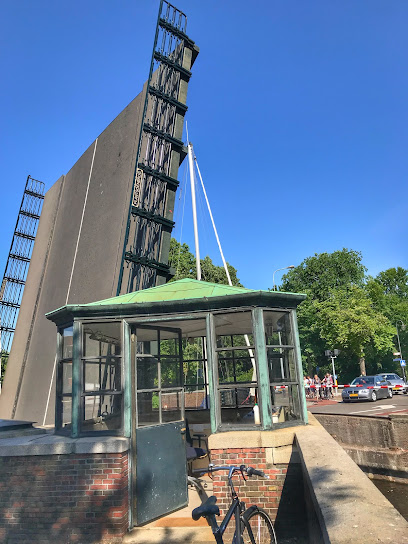
Martinitoren
Discover the Martinitoren, Groningen's iconic bell tower, and immerse yourself in history, stunning architecture, and breathtaking views of the city.
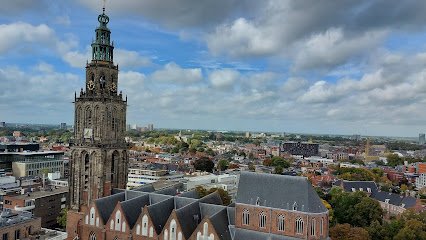
Prinsentuin
Explore the serene beauty of Prinsentuin, a historical garden in Groningen filled with vibrant flowers and tranquil pathways.
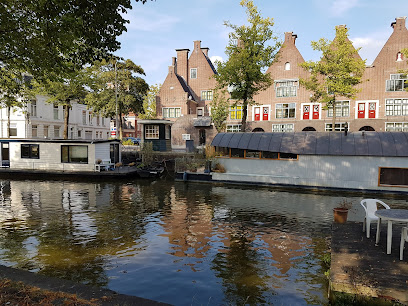
Haren Hortus Botanicus
Explore the enchanting Haren Hortus Botanicus, a serene botanical garden with diverse plant collections and tranquil walking paths in the heart of the Netherlands.
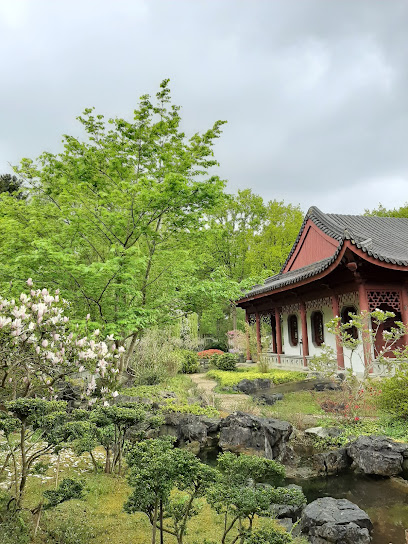
Martinikerk
Explore the historic Martinikerk in Groningen, a stunning Protestant church with breathtaking architecture and panoramic views from its iconic tower.
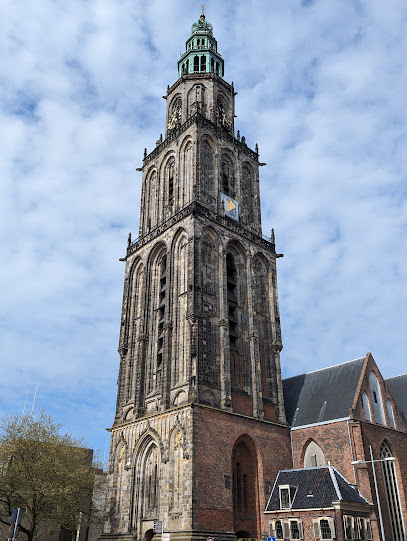
Akerk
Explore Akerk, Groningen's cultural landmark blending history with vibrant music events and stunning architecture for an unforgettable experience.
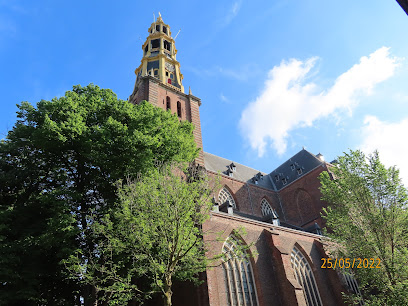
Sint Jozefkathedraal
Explore the stunning Sint Jozefkathedraal in Groningen, a neo-Gothic masterpiece that embodies spiritual beauty and architectural excellence.
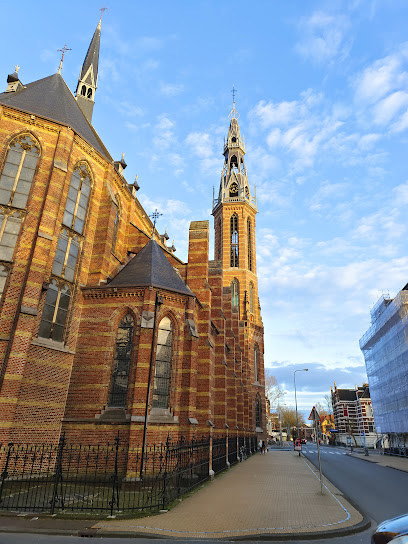
University Museum
Uncover the wonders of science and culture at the University Museum, a captivating destination in Groningen for curious minds and families.
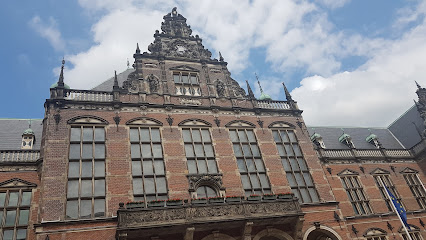
Stichting Folkingestraat Synagoge
Explore the profound history and cultural richness of the Stichting Folkingestraat Synagoge in Groningen, a must-visit for every traveler.
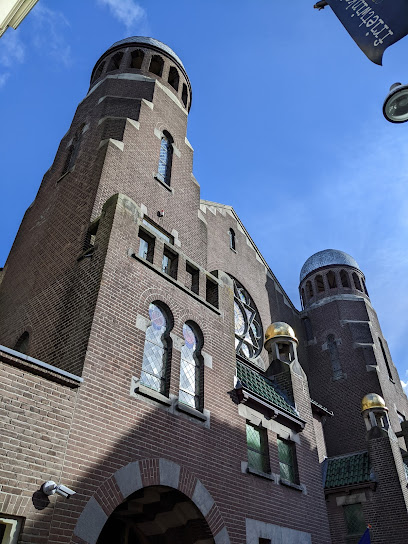
Grafisch Museum Groningen
Discover the Grafisch Museum Groningen, a hub of creativity showcasing the evolution of graphic arts through interactive exhibits and stunning collections.
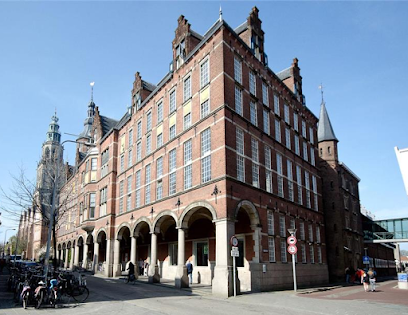
Martinikerkhof
Experience the tranquility and beauty of Martinikerkhof in Groningen, a serene park surrounded by rich history and vibrant culture.
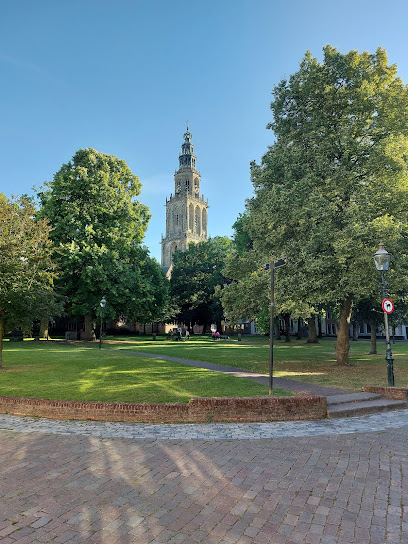
Nieuwe Kerk
Explore the historical and architectural wonder of Nieuwe Kerk, a striking Protestant church in the heart of Groningen, perfect for cultural enthusiasts and history buffs.
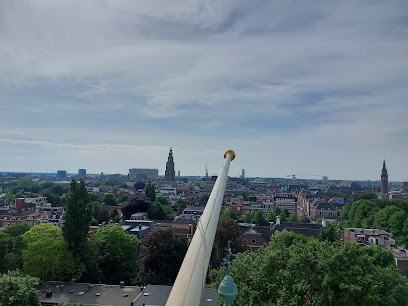
Wall House # 2
Explore the innovative design of Wall House #2 in Groningen, a masterpiece by Gerrit Rietveld, blending art, architecture, and nature seamlessly.
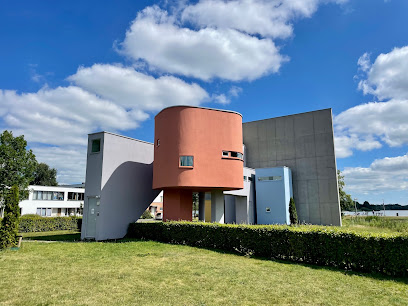
Unmissable attractions to see
TT Circuit Assen
Discover the exhilarating TT Circuit Assen, the heartbeat of Dutch motorsport, where thrilling races and rich history come together in a stunning setting.
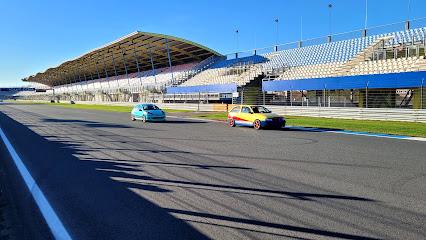
Groninger Museum
Explore Groninger Museum, a contemporary art haven in Groningen, featuring stunning architecture and diverse exhibitions that inspire and engage visitors.
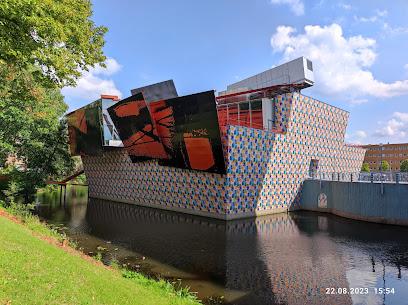
Herinneringscentrum Kamp Westerbork
Explore the profound history of the Holocaust at Herinneringscentrum Kamp Westerbork, a museum and memorial in Hooghalen, Netherlands.
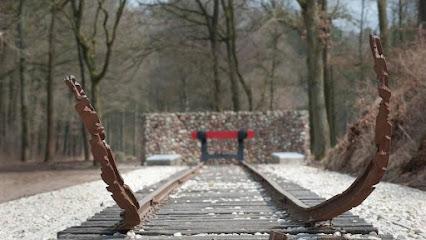
Forum Groningen
Explore the vibrant cultural center of Forum Groningen, where art, cinema, and local flavors come together for an unforgettable experience.
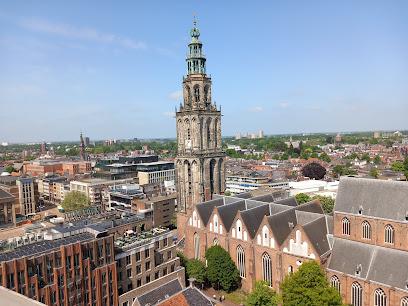
Drents Museum
Experience the rich heritage and artistic brilliance at Drents Museum, Assen's premier destination for art and history enthusiasts.
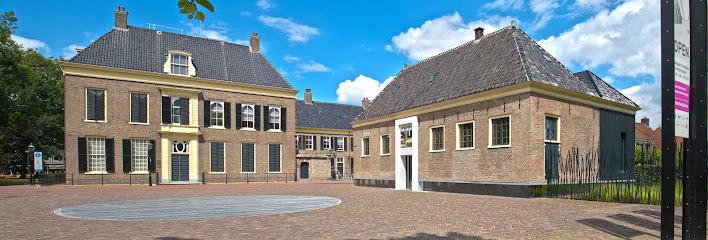
Martinitoren
Explore Groningen's iconic Martinitoren, a stunning Gothic tower with breathtaking views and rich history in the heart of the city.
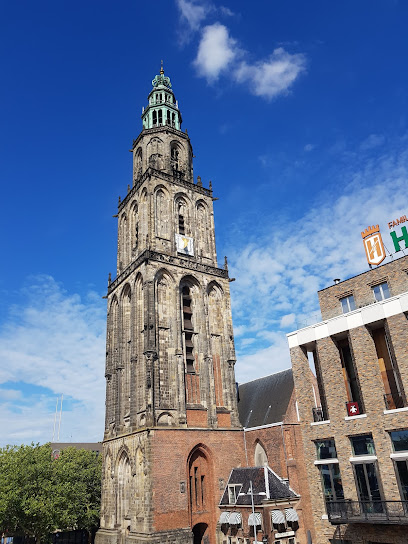
Stadspark
Discover the beauty and tranquility of Stadspark in Groningen, a perfect urban retreat for nature lovers and families alike.
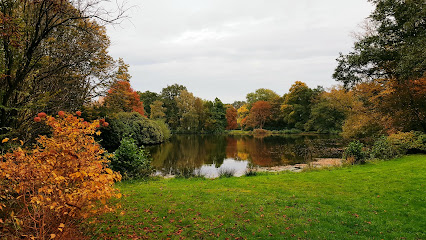
Asserbos
Explore the natural wonders of Asserbos, a serene national forest in Assen perfect for hiking, picnicking, and enjoying the tranquility of nature.
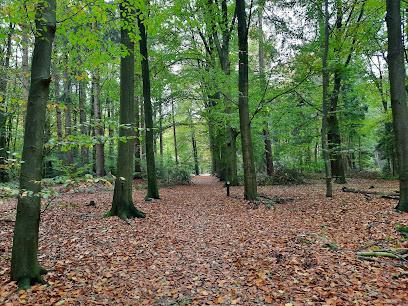
Prinsentuin
Explore the serene beauty of Prinsentuin, a historic garden in Groningen, perfect for relaxation and nature lovers alike.
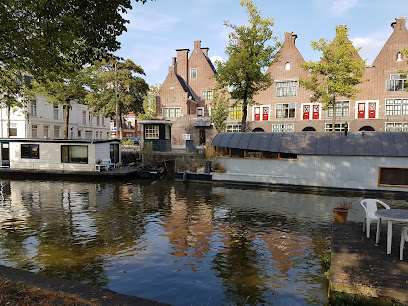
Haren Hortus Botanicus
Explore the diverse beauty of Haren Hortus Botanicus, a botanical garden in the Netherlands featuring stunning plant collections and peaceful landscapes.
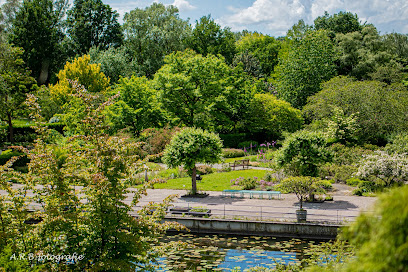
Kamp Westerbork
Explore the poignant history at Kamp Westerbork, a memorial museum chronicling the Jewish deportations of WWII in a serene Dutch landscape.
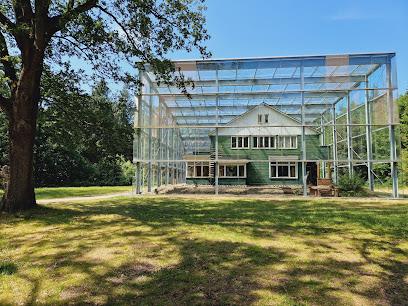
Kinderboerderij Stadspark
Explore Kinderboerderij Stadspark in Groningen — a delightful children's farm offering family-friendly fun and educational experiences amidst nature.
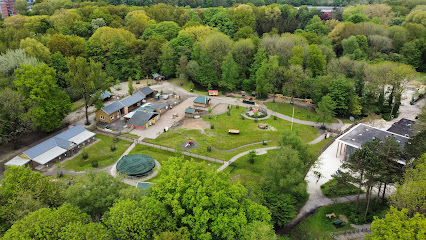
Martinikerk
Discover the enchanting Martinikerk in Groningen, a stunning Protestant church offering rich history, breathtaking views, and serene ambiance.
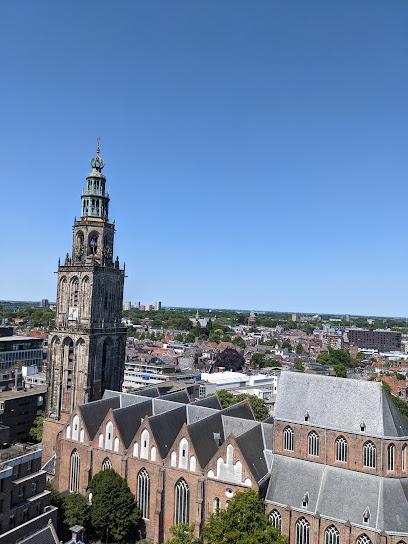
Museum Belvédère
Explore the rich tapestry of modern art at Museum Belvédère, where creativity meets nature in Oranjewoud, Netherlands.
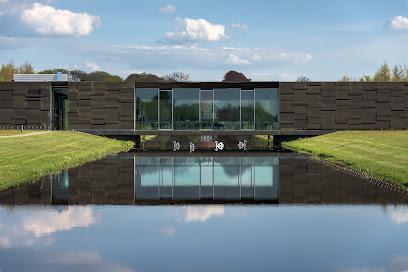
Verhildersum
Explore Verhildersum: A Beautiful Castle, Heritage Museum, and Delicious Dining Experience in the Heart of Leens.
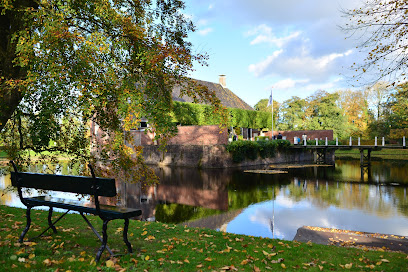
Essential places to dine
Mr. Mofongo
Discover the vibrant taste of Caribbean cuisine at Mr. Mofongo in Groningen – where flavor meets fun!
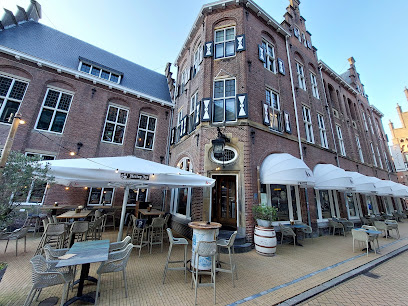
De Uurwerker
Discover De Uurwerker: A Culinary Haven in Groningen Offering Diverse Menus in a Cozy Atmosphere Perfect for Any Occasion.
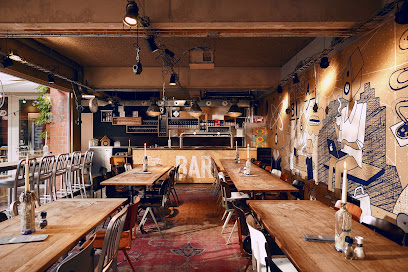
De Pastafabriek Groningen
Experience authentic Italian cuisine at De Pastafabriek in Groningen - where fresh pasta meets traditional recipes in a charming setting.
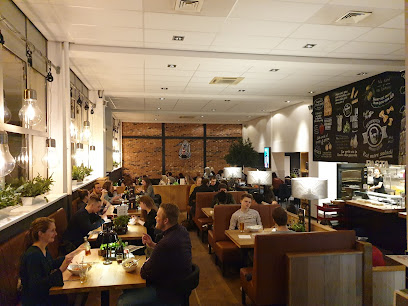
Block & Barrels
Experience culinary excellence at Block & Barrels - where local flavors meet international cuisine in Groningen's vibrant dining scene.
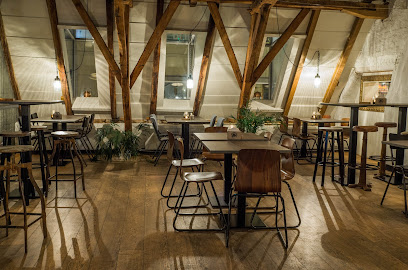
Wereldburgers
Discover gourmet hamburgers crafted from fresh local ingredients at Wereldburgers in Groningen - A culinary delight not to be missed!
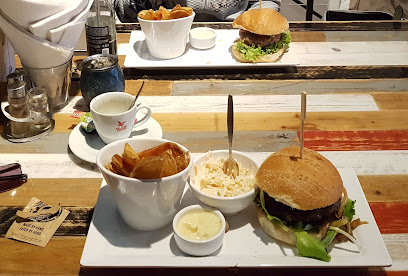
Croissanterie Pigalle
Experience delightful pastries and hearty breakfasts at Croissanterie Pigalle, Groningen's charming bakery-café perfect for every meal.
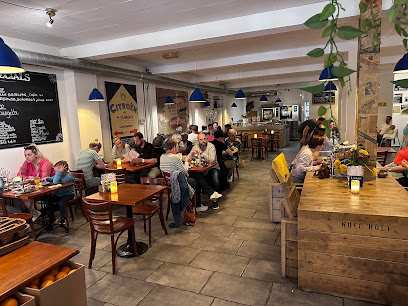
Gustatio Groningen
Experience authentic Italian cuisine at Gustatio Groningen, where tradition meets flavor in a cozy atmosphere.
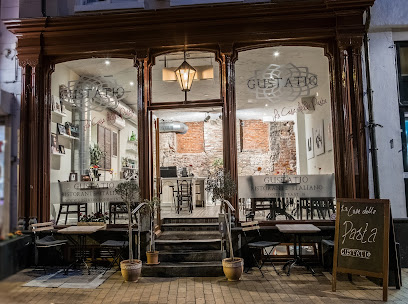
Het Concerthuis
Experience culinary delights at Het Concerthuis, Groningen's top gastropub blending tradition with innovation in every dish.
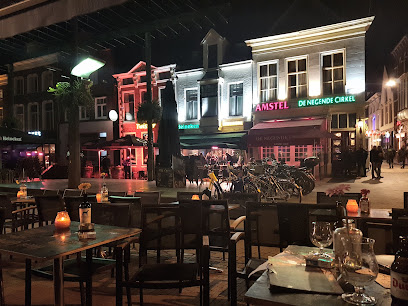
Ugly Duck
Discover delicious local flavors at Ugly Duck in Groningen – where cozy café meets delightful diner dining.
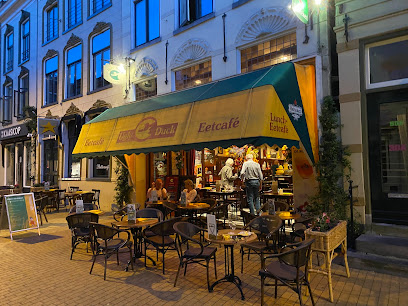
't Feithhuis
Explore authentic Dutch cuisine at 't Feithhuis in Groningen - where tradition meets modern dining in a historic setting.
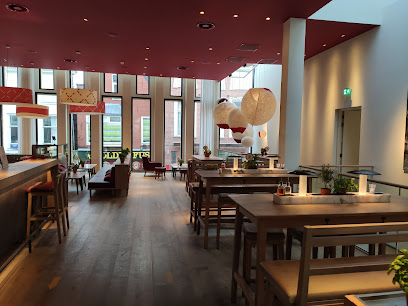
Cho Fah eathai
Savor authentic Thai flavors at Cho Fah eathai in Groningen – where culinary tradition meets modern dining.
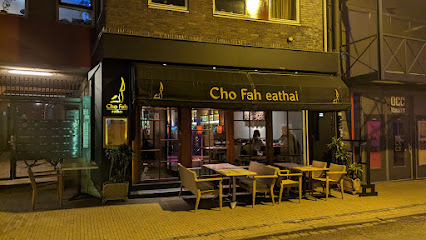
Restaurant De Beren Groningen
Experience flavorful cuisine and warm hospitality at Restaurant De Beren Groningen - where every meal is a celebration of taste.
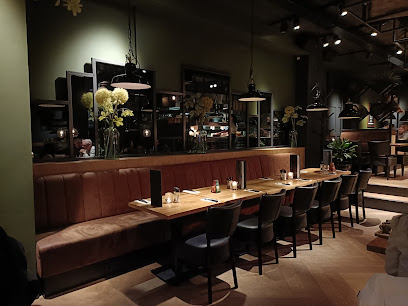
Restaurant & Brasserie Groen
Discover the exquisite flavors of Groningen at Restaurant & Brasserie Groen, where local ingredients meet culinary artistry in an inviting atmosphere.
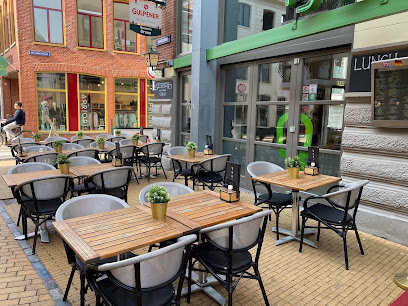
Steakhouse Bronco
Experience exquisite steak cuisine at Steakhouse Bronco in Groningen – where every bite tells a story of flavor and passion.
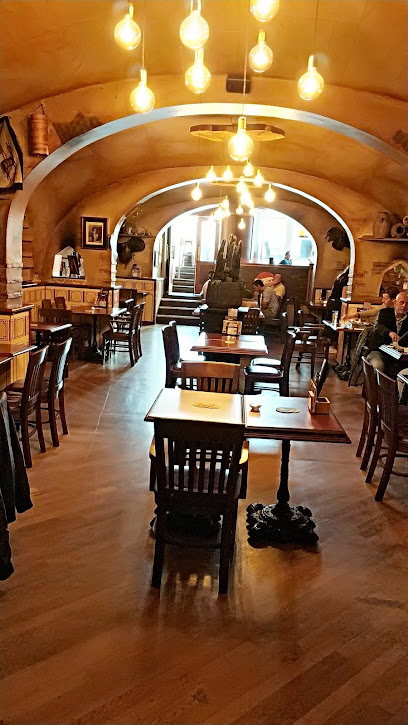
Stadscafé Double A
Experience the best of Groningen's culinary scene at Stadscafé Double A – where local flavors meet cozy café vibes.
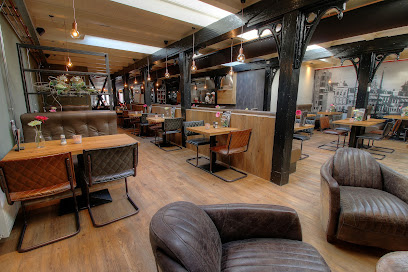
Markets, malls and hidden boutiques
Winkelcentrum Paddepoel
Explore Winkelcentrum Paddepoel, Groningen's vibrant shopping mall with diverse stores, delicious dining, and a lively atmosphere for all ages.
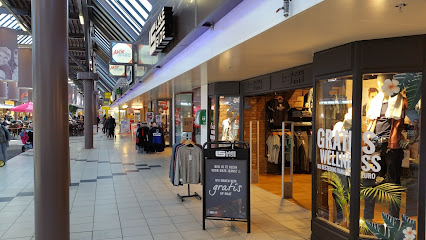
Zara
Discover contemporary fashion at Zara in Groningen, where style meets affordability in a vibrant shopping atmosphere.
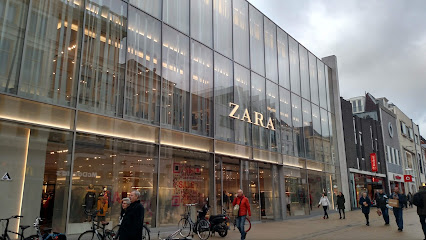
SoLow XXL
Discover unique gifts and creative crafts at SoLow XXL, a vibrant gift shop in Groningen's heart, perfect for any tourist's shopping adventure.
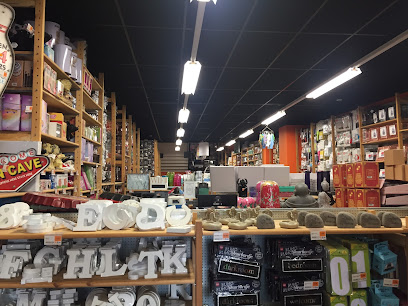
Bershka
Explore the latest trends in fashion at Bershka Groningen, your ultimate shopping destination for stylish apparel and accessories.
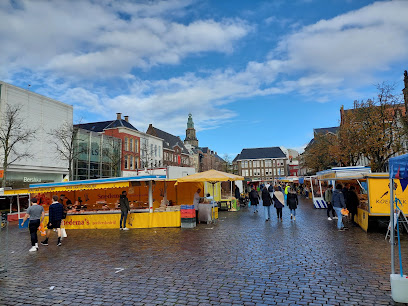
Purple Dragon
Experience the ultimate gaming adventure at Purple Dragon, Groningen's premier game store for board games, card games, and collectibles.
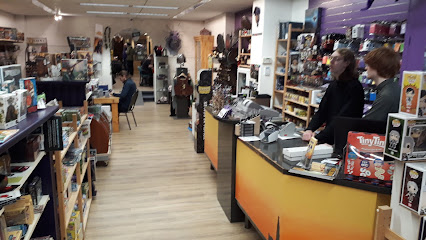
Søstrene Grene
Explore Søstrene Grene in Groningen for a unique selection of art supplies, home decor, and handcrafted items, all inspired by Scandinavian design.
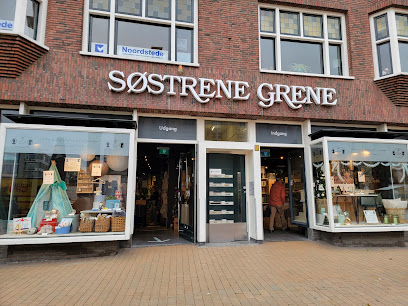
Russian Specialties Vyatka
Experience the essence of Russian culture with authentic specialties, unique gifts, and delightful treats at Russian Specialties Vyatka in Groningen.
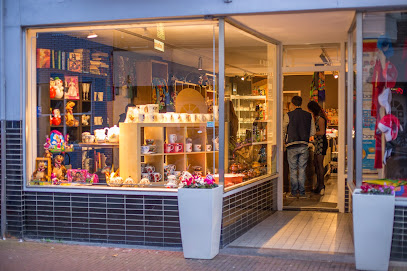
Flying Tiger Copenhagen
Explore the vibrant gifts and whimsical decor at Flying Tiger Copenhagen, a unique shopping experience in Groningen that delights visitors of all ages.
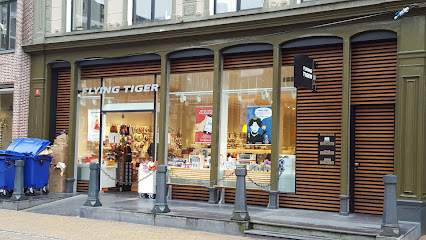
Laif & Nuver
Discover unique gifts and home goods at Laif & Nuver, a charming gift shop in Groningen's vibrant Binnenstad area.
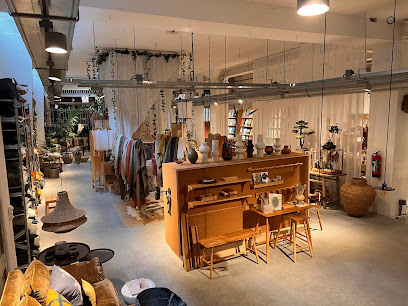
Superdry™ Groningen
Discover unique streetwear and stylish apparel at Superdry™ Groningen, the ultimate destination for fashion enthusiasts in the heart of the city.
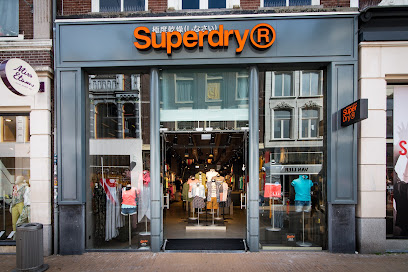
Vintage Island
Explore the charm of Vintage Island, Groningen's premier destination for unique vintage clothing and accessories that make a statement.
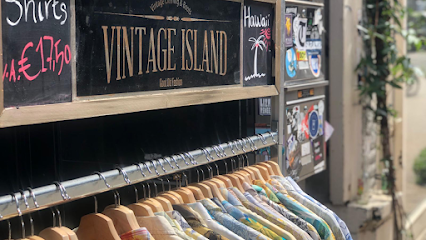
Het KadoCafe
Explore Het KadoCafe: Groningen's enchanting gift shop and tea haven, where unique souvenirs and calming teas await your discovery.
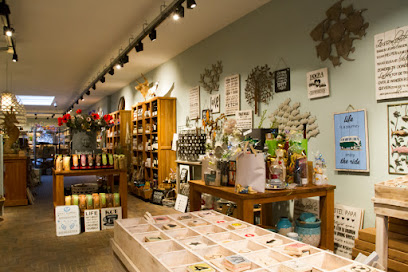
G-Star RAW Store
Explore the stylish G-Star RAW Store in Groningen for premium denim and unique fashion accessories, reflecting contemporary trends and sustainability.
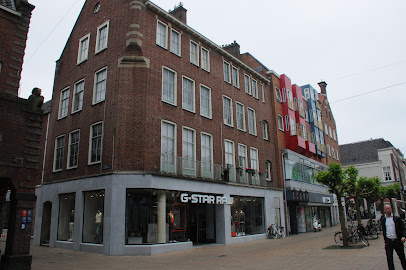
ReShare STORE Groningen
Explore sustainable fashion in Groningen at ReShare STORE, where pre-loved clothing meets unique style and eco-conscious shopping.
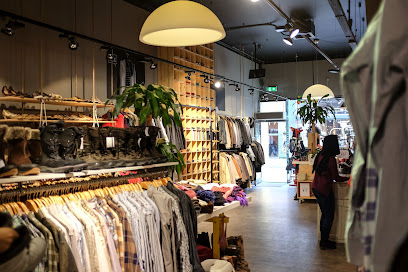
My Jewellery | Sieraden- en Kleding | Groningen
Explore the charm of My Jewellery in Groningen, where fashion meets unique gifts in a stylish shopping experience.
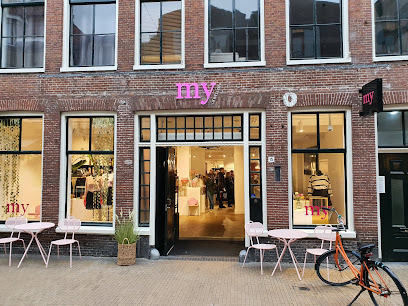
Essential bars & hidden hideouts
Mr. Mofongo
Discover the flavors of Groningen at Mr. Mofongo, where exceptional food meets a vibrant atmosphere.
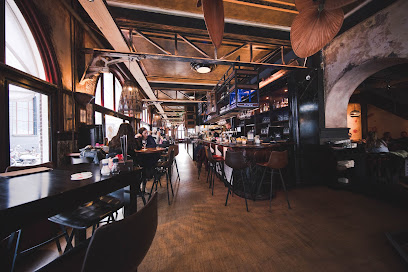
De Drie Gezusters
Discover De Drie Gezusters in Groningen - a vibrant restaurant offering a delectable menu and a lively atmosphere for an unforgettable dining experience.
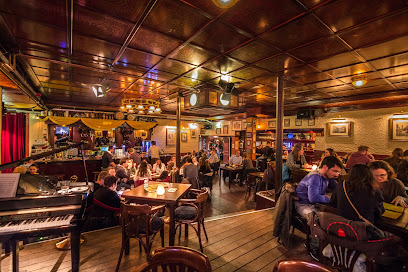
O'Ceallaigh Traditional Music Bar
Discover the vibrant ambiance and authentic Irish spirit at O'Ceallaigh Traditional Music Bar in Groningen, where music, food, and culture come alive.
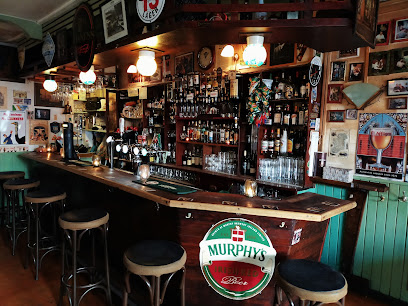
Café the Crown
Experience the cozy ambiance and local flavors at Café the Crown, a premier pub in the heart of Groningen.
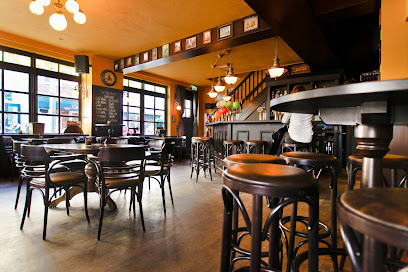
Groote Griet
Experience the vibrant atmosphere of Groote Griet, Groningen's top sports bar, where delicious food and thrilling events come together.
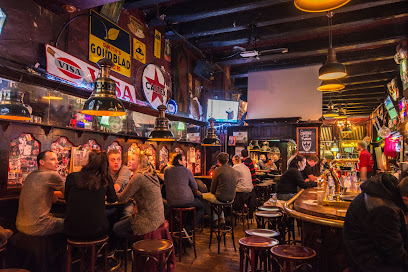
Chaplin's Pub
Discover the warmth and vibrancy of Chaplin's Pub, a beloved Irish bar in Groningen offering great drinks, delicious food, and lively entertainment.
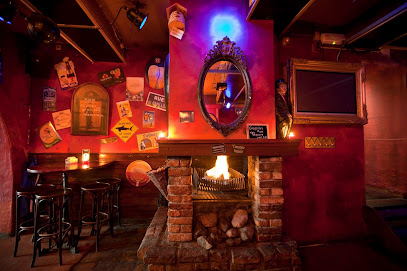
The Stockroom
Discover The Stockroom in Groningen: A Stylish Cocktail Bar Offering Unique Drinks and a Vibrant Atmosphere.
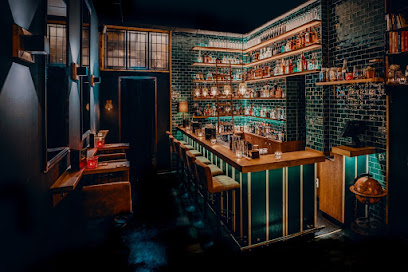
Cafe Oblomov BV
Discover the charm of Groningen at Cafe Oblomov, where delightful drinks and a cozy atmosphere await in the heart of the city.
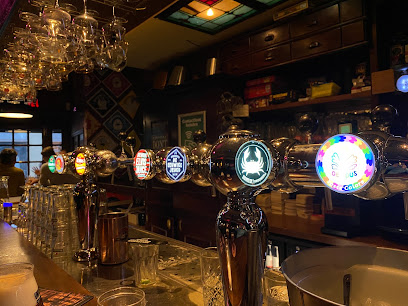
The Cabin
Experience the charm of Groningen at The Cabin, a cozy bar-cafe-restaurant offering delightful drinks and a welcoming atmosphere for all visitors.
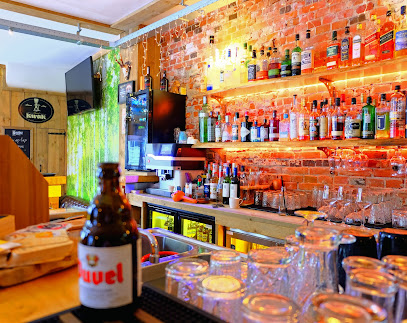
Partycafe de Doos
Discover Groningen's nightlife at Partycafe de Doos, a vibrant bar and event venue known for its electrifying atmosphere and late-night entertainment.
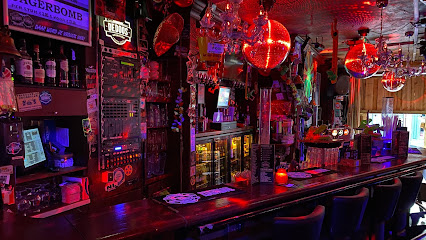
Bramble
Discover Bramble, Groningen's premier cocktail bar, where unique mixology meets a cozy atmosphere for an unforgettable experience.
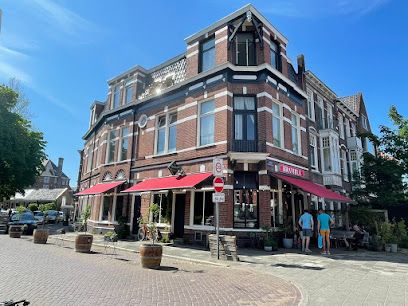
Chupitos Shooter bar
Experience Groningen's vibrant nightlife at Chupitos Shooter Bar, home to an array of creative shooter cocktails in a lively atmosphere.
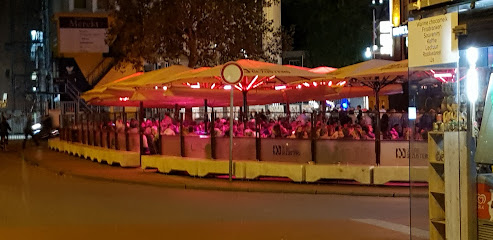
Bar Players
Experience the lively nightlife of Groningen at Bar Players, where great drinks, music, and vibrant company await.
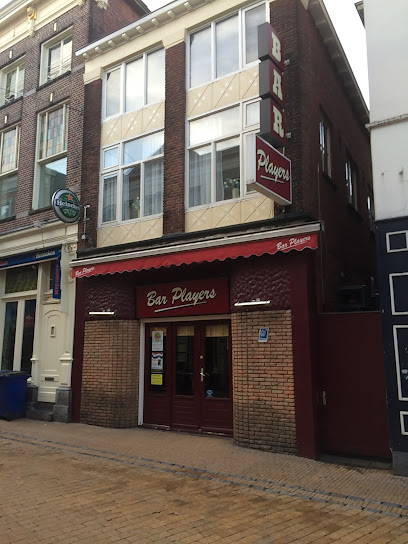
Café de Prins
Experience the lively atmosphere and inclusivity of Café de Prins in Groningen - a premier gay bar, café, and nightlife hotspot.
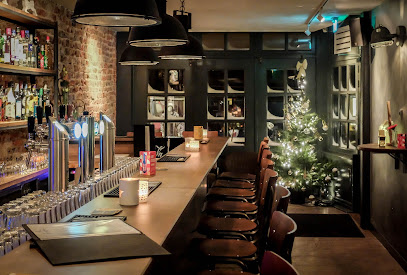
Local Phrases
-
- HelloMoi
[Moy] - GoodbyeDoeg
[Dookh] - YesJa
[Yah] - NoNee
[Nay] - Please/You're welcomeGraag gedaan
[Khrahkh khedahn] - Thank youDank je
[Dahngk yeh] - Excuse me/SorrySorry
[Soh-ree] - How are you?Hoe is 't met die?
[Hoo is t met dee] - Fine. And you?Goud. En met jou?
[Khowt. En met yow] - Do you speak English?Praotstoe Engels?
[Prauts-toh-eh Engels] - I don't understandIk begriep't nait
[Ick beh-greept nayt]
- HelloMoi
-
- I'd like to see the menu, pleaseMag ik de menu kaiken, aub
[Mahkh ik deh menew kai-ken, owb] - I don't eat meatIk ait gain vlees
[Ick ait khain flays] - Cheers!Proost!
[Prohst] - I would like to pay, pleaseIk wil betoalen, aub
[Ick wil beh-tow-luhn, owb]
- I'd like to see the menu, pleaseMag ik de menu kaiken, aub
-
- Help!Help!
[Help] - Go away!Goa vot!
[Goh fawt] - Call the Police!Bel de politie!
[Bel deh poh-lee-see] - Call a doctor!Bel een dokter!
[Bel ayn dokh-ter] - I'm lostIk bin verdwaald
[Ick bin fer-dwahlt] - I'm illIk bin ziek
[Ick bin zik]
- Help!Help!
-
- I'd like to buy...Ik wil kopen...
[Ick wil koh-pen] - I'm just lookingIk kiek alleen mor
[Ick keek a-lane mor] - How much is it?Hoeveul kost dat?
[Hoo-vool kost dat] - That's too expensiveDat is te duur
[Dat is teh dur] - Can you lower the price?Kun je de prijs verlagen?
[Koon yeh deh preis fuh-rah-lah-ghen]
- I'd like to buy...Ik wil kopen...
-
- What time is it?Hoe loat is 't?
[Hoo loat is t] - It's one o'clock't Is ain uur
[Is ain oor] - Half past (10)Half elf
[Half elf] - MorningMörn
[Murn] - AfternoonMiddag
[Middakh] - EveningOavend
[Ow-vend] - YesterdayGuster
[Goo-ster] - TodayVandoag
[Vahn-dohkh] - TomorrowMörgen
[Mur-ghen] - 1Ain
[Ayn] - 2Twee
[Tway] - 3Drij
[Dreiy] - 4Vaaier
[Vah-yer] - 5Vief
[Veev] - 6Zes
[Zehs] - 7Zeven
[Zeh-ven] - 8Acht
[Akh-t] - 9Negen
[Neh-ghen] - 10Tien
[Teen]
- What time is it?Hoe loat is 't?
-
- Where's a/the...?Weer is de...?
[Wehr is deh] - What's the address?Wat is 't adres?
[Wat is t ah-dres] - Can you show me (on the map)?Kanstoe mie (op kaart) laoten ziehn?
[Kahn-stow mee (op kart) lau-tuhn zeen] - When's the next (bus)?Wanneer is de volgende (bus)?
[Vehn-ehr is deh fohl-ghen-deh (bus)] - A ticket (to ....)Een kaartje (naar ....)
[Ayn kahrt-yuh (nar)]
- Where's a/the...?Weer is de...?
History of Groningen
-
Groningen, located in the northern part of the Netherlands, traces its origins to around 1040 AD. Archaeological evidence suggests that the area was inhabited during Roman times, but it was in the 11th century that it began to develop as a significant settlement. By the 13th century, Groningen had grown into an important trade center, leveraging its strategic location along the trade routes between Germany and the Netherlands.
-
During the late Middle Ages, Groningen became a member of the Hanseatic League, a powerful economic and defensive alliance of merchant guilds and their market towns. This membership facilitated extensive trade across Northern Europe, bringing wealth and influence to the city. The period saw the construction of many grand buildings that still stand today, reflecting the city's prosperity during this era.
-
The Eighty Years' War (1568–1648) was a pivotal conflict in Groningen's history. The city initially remained loyal to the Spanish Crown but was captured by the Dutch forces in 1594, an event known as the 'Reductie van Groningen'. This marked the city's integration into the Dutch Republic. The University of Groningen was founded shortly thereafter in 1614, symbolizing a new era of education and progress.
-
During the Napoleonic Wars, Groningen fell under French control from 1795 to 1813. The city experienced significant changes during this period, including administrative and legal reforms. The French influence left an indelible mark on the city's infrastructure and governance, which persisted even after the fall of Napoleon and Groningen's reintegration into the Kingdom of the Netherlands.
-
World War II had a profound impact on Groningen. In April 1945, the city was the site of a fierce battle between Canadian forces and German occupiers. The Battle of Groningen resulted in substantial damage to the city, particularly in the northern part. The liberation of Groningen marked a significant moment in the city's history and is commemorated annually.
-
In the post-war period, Groningen underwent extensive reconstruction and modernization. The city's economy diversified, with a strong emphasis on education, technology, and healthcare. The University of Groningen has grown into one of the leading research universities in Europe, attracting students and academics from around the globe. Today, Groningen is known for its vibrant cultural scene, innovative architecture, and bustling student life.
Groningen Essentials
-
Groningen is well-connected and accessible through various means of transportation. The nearest international airport is Groningen Airport Eelde (GRQ), located about 15 kilometers south of the city. For those traveling by train, Groningen Central Station is a major hub with direct connections to other Dutch cities like Amsterdam, Utrecht, and Rotterdam. International travelers can also take a train from Germany. Buses operated by FlixBus and other companies provide additional options for reaching the city.
-
Groningen offers a variety of transportation options. The city's compact size makes it ideal for cycling, and bikes can be rented easily. Public transport is efficient, with buses covering the entire city and surrounding areas. You can purchase an OV-chipkaart for travel on buses and trains. Taxis are also readily available but can be more expensive. Car rentals are an option for those looking to explore the wider region.
-
The official currency in the Netherlands is the Euro (€). Credit and debit cards are widely accepted throughout Groningen, including in shops, restaurants, and hotels. Contactless payment is common. ATMs are plentiful, especially in the city center, and most accept international cards. It's advisable to carry some cash for smaller establishments and markets.
-
Groningen is generally a safe city for tourists. However, like any urban area, it is important to stay vigilant. Pickpocketing can occur in crowded places such as markets and public transport. The areas around the central station and Grote Markt can be busier and should be navigated with caution, especially at night. Avoid isolated areas after dark.
-
In case of an emergency, dial 112 for police, fire, or medical assistance. Groningen has several hospitals, including the University Medical Center Groningen (UMCG). Pharmacies are available throughout the city, and many operate 24/7. It is recommended to have travel insurance that covers medical emergencies.
-
Fashion: Do dress casually but stylishly; avoid overly flashy clothes. Religion: Do be respectful when visiting religious sites such as churches; it's customary to be quiet and respectful. Public Transport: Do have your OV-chipkaart ready and check in and out. Don't talk loudly or play music. Greetings: Do greet people with a simple 'Hallo' or 'Goedemorgen'. A handshake is customary. Eating & Drinking: Do try local specialties like 'stroopwafels' and 'Groninger koek'. Don't leave a tip on the table; it's usually included in the bill.
-
To experience Groningen like a local, rent a bike and explore the city’s extensive cycling paths. Visit the Noorderplantsoen park for a relaxing afternoon or a local event. Try to catch a performance at the Stadsschouwburg Groningen, one of the oldest theaters in the Netherlands. For a unique local experience, visit the Vismarkt on Fridays for fresh produce and local goods. Engage with locals in cafes and bars; they are typically friendly and willing to share insights.
Nearby Cities to Groningen
-
Things To Do in Zwolle
-
Things To Do in Amersfoort
-
Things To Do in Arnhem
-
Things To Do in Amsterdam
-
Things To Do in Bremen
-
Things To Do in Munster
-
Things To Do in Haarlem
-
Things To Do in Utrecht
-
Things To Do in Nijmegen
-
Things To Do in Leiden
-
Things To Do in Essen
-
Things To Do in The Hague
-
Things To Do in Delft
-
Things To Do in Rotterdam
-
Things To Do in Eindhoven













